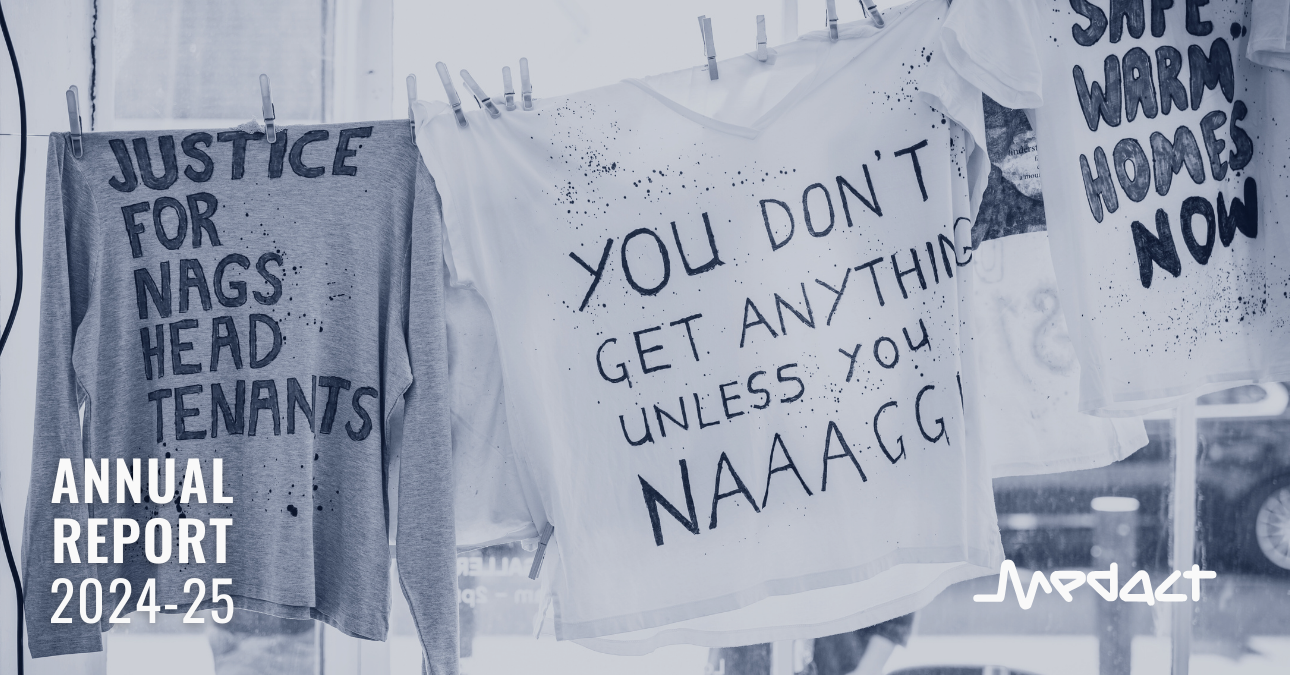
This article is first article published as part of our Annual Report 2024-25
When we talk about winning change on health justice issues, we don’t just mean overturning a particularly harmful policy or changing the mind of someone who holds power. While these are important aims, at Medact we focus on confronting the material conditions that harm health, aiming to fundamentally change the power relations that give rise to health inequity.
We know we are most effective when our work is led by, and in solidarity with, the people most impacted by these inequities, building power with communities, not for them. Our organising – fostering deep and lasting relationships with the communities we work alongside – is fundamental to this approach. We see campaigning as a form of care, and solidarity as a form of prevention.
Over the last year we have seen the success of this approach across our Homes for Health campaigns, with tenants and health workers uniting to secure millions in increased investment in the quality of their homes, guarantees for priority re-housing, and apologies from neglectful landlords and councils. Alongside this we were a part of a national movement that secured a £13 billion government funding commitment to improve the energy efficiency of homes and invest in low-carbon heating.
The housing system has turned homes from sources of health and stability into sites of sickness affecting our minds, bodies and communities. At the same time, our reliance on fossil fuels has led to spiralling heating costs and a fuel poverty crisis – leaving millions of people unsafe at home. Our recent victories play a vital role in changing this system, which disproportionately exposes those with the least power to the worst health.
Stories from the ground
Barton House, Bristol
On November 14th 2023, residents of the Barton House estate in Bristol were evacuated en masse overnight due to structural concerns for the buildings. Communication from the council was inadequate, temporary accommodation was unsafe and undignified, and residents were left suffering in the wake of this mass-traumatising event, and with many unanswered questions about the safety of their homes. They quickly launched a campaign calling for dignity and respect, supported by the community union ACORN, which had been present on the estate for over five years supporting tenants organise for better housing.
In August 2024, Bristol Medact were approached by residents who felt that the medical issues they were experiencing as a result of living in unsafe and undignified housing were being ignored. Together they campaigned for justice for the residents and in time came to write the Barton House report: “We do not feel safe here”. This report brought together powerful testimonies from residents alongside analysis from local health workers. It outlined the systemic failures by the council and the resulting health impacts on residents.
Thanks to joint pressure from the community, ACORN and Medact Bristol, the council apologised and committed to many of the report’s demands, including rehousing residents. This was a hard-won victory, led by the resistance of a community strengthened by years of organising on the estate – and it is just the start.
Nags Head, London
In 2020, the Nags Head Tenants Association formed to coordinate mutual aid during the pandemic. Soon after, the group turned its focus to tackling the significant neglect experienced by tenants and calling for widespread estate improvement.
In 2023, the Tenants Association launched a campaign with Medact London, London Renters Union and Disability Rights UK, demanding that their housing provider, Peabody, remedied widespread disrepair caused by neglect and structural issues. Through this process, they exposed the devastating human cost of Peabody’s failure, including the extent of significant respiratory illness exacerbated by mould and serious dereliction of care towards disabled tenants. Together the groups co-produced a report that through health-focused surveys and interviews laid bare this cost.
The powerful campaigning work and the impact of the report resulted in national media coverage and significant movement from Peabody to commit £3 million into the estate alongside a shift towards strategic consultation with tenants. The impact of the campaign shows how linking health evidence with tenants’ voices can force systemic change and this was possible because the community organised and came together around a shared vision.
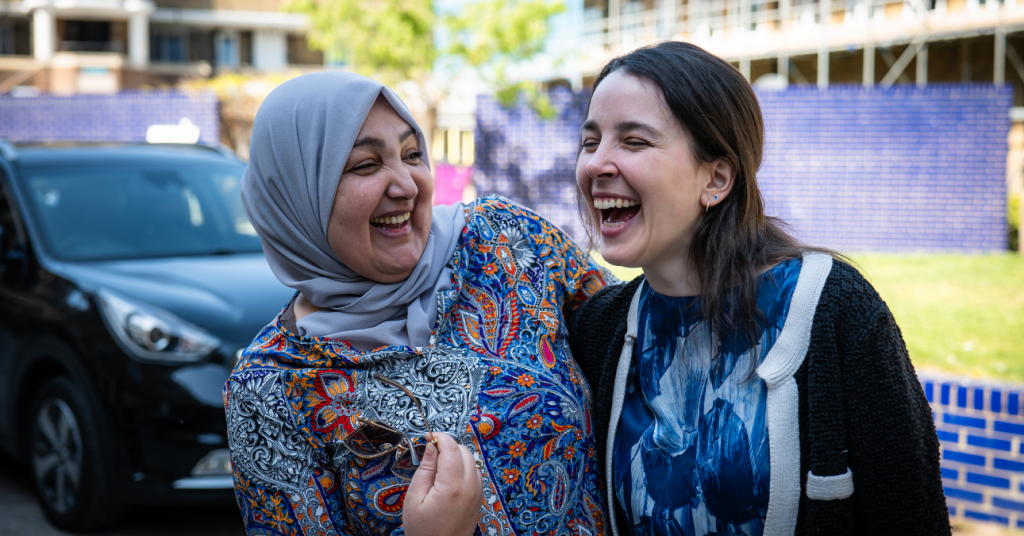
The road ahead
These stories embody the pillars that underpin the Homes for Health campaign and will continue to guide our work going forward.
Homes for Health Campaign Pillars
Base-building & local organising
We support local Medact groups to build power in their communities by working alongside tenants, community organisations and allied stakeholders – increasing our collective ability to affect change.
National advocacy rooted in local struggles
We ensure national strategies reflect the experiences and demands of local organising. We elevate community-led stories and use them to advocate for structural policy change on housing and fuel poverty.
Coalition-building & movement alignment
We recognise that health justice cannot be won in isolation. We work in coalition to support broader housing and energy justice movements – using the voice and position of the health community to amplify grassroots struggles, share resources and increase campaign visibility.
Narrative change
We target the economic, political and social systems that produce poor housing and ill health. Our goal is to transform – not merely mitigate – the structural inequalities driving health injustice. We train health spokespeople and shift public discourse by framing housing as a public health issue.
In the year ahead, we’re focusing on making homes healthier and more affordable. Rent and energy costs directly impact physical, mental and financial well-being. When rent is unaffordable, families are often forced into substandard housing or overcrowded conditions, increasing exposure to environmental hazards, stress and instability.
High energy bills and energy-inefficient homes not only drive up utility bills but can also lead to unhealthy indoor conditions – such as extreme temperatures, mould, and poor air quality – that worsen chronic illnesses like asthma or cardiovascular disease.
We will be supporting movements campaigning for:
- Rent controls
- Energy social tariffs
- Community-led retrofit for low-income households
This work relies on Medact members in groups across the country standing with their neighbours to win health justice.
Medact Annual Report 2024-25
-
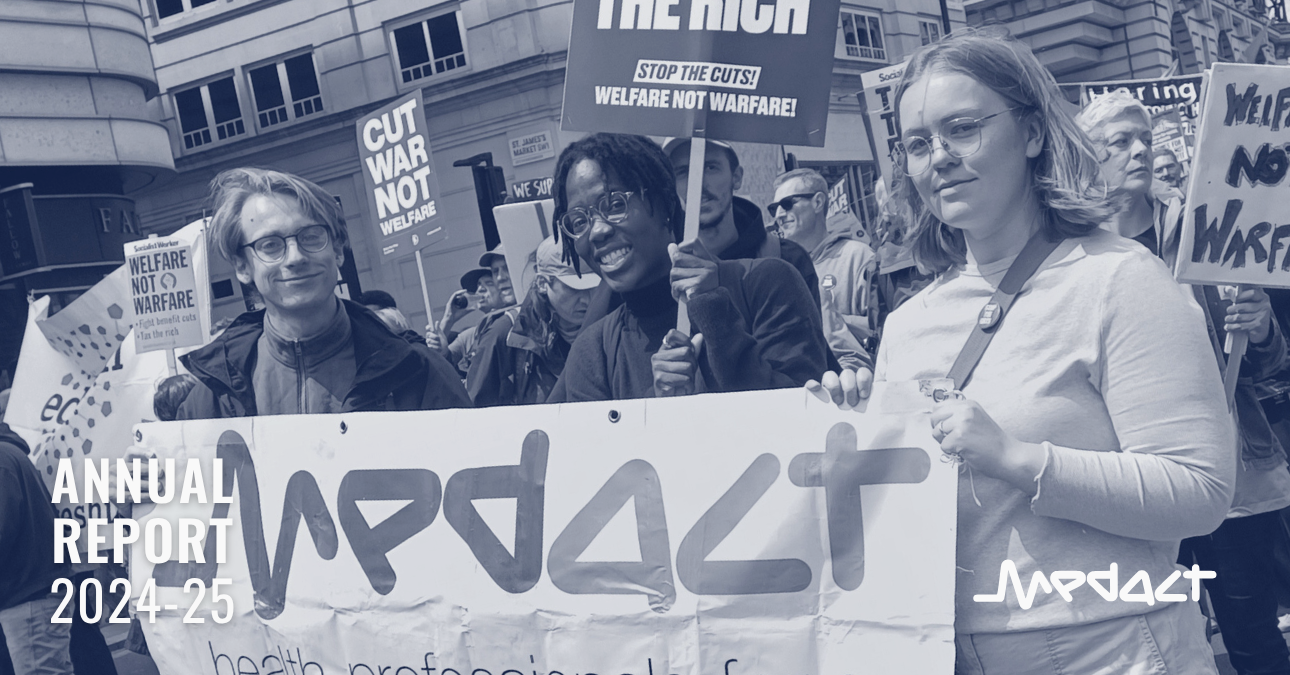
Leading the change from below – building a countervailing power for health justice
-
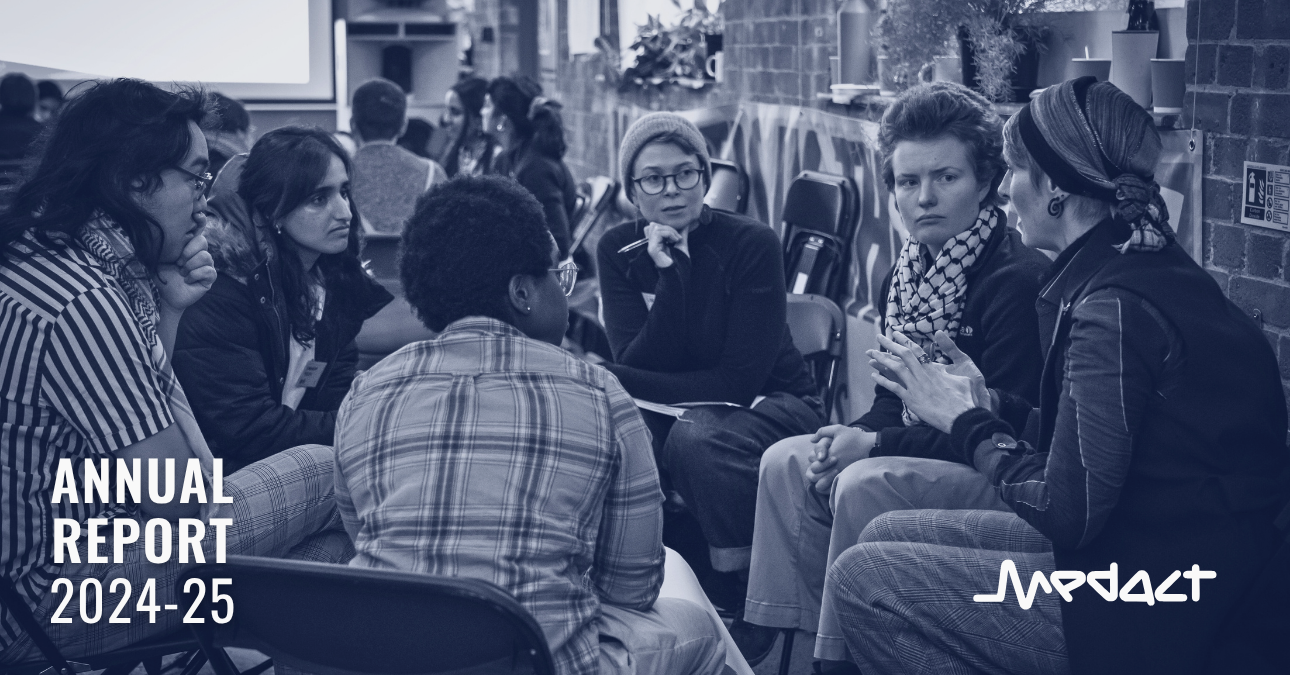
A growing movement for health justice
-
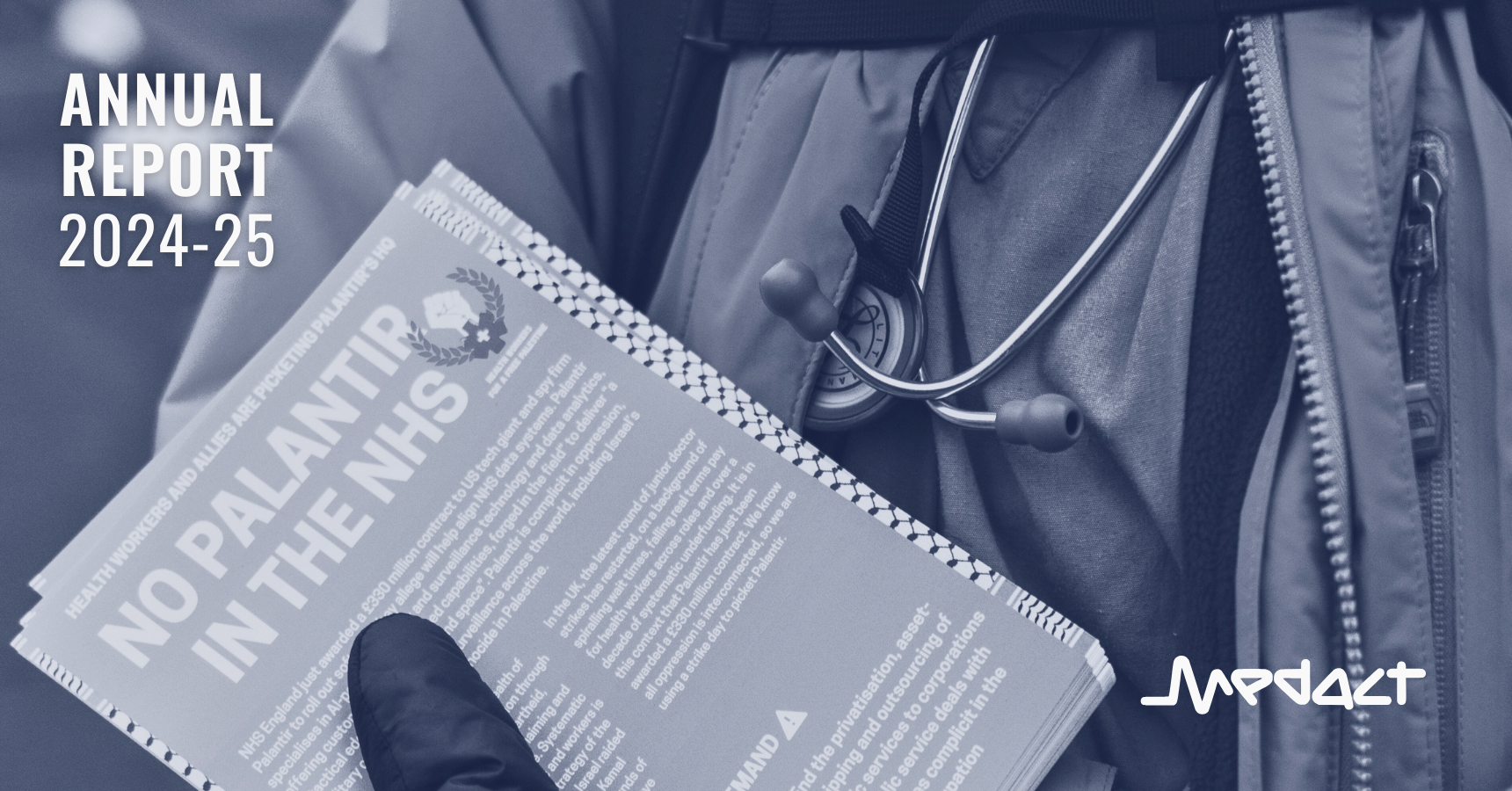
Gaza under siege, health solidarity across the globe
-
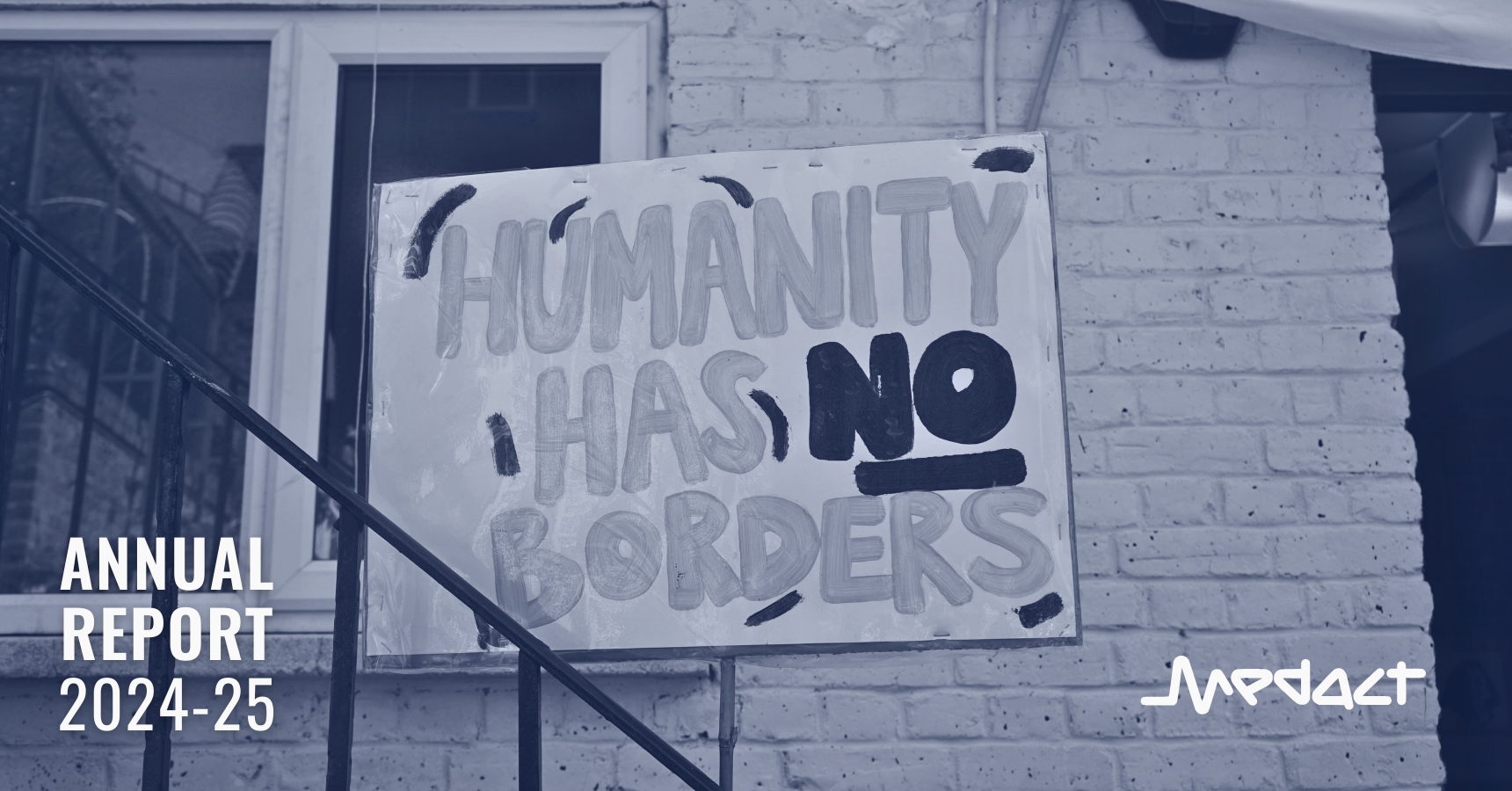
Towards abolishing borders and violence in healthcare
-
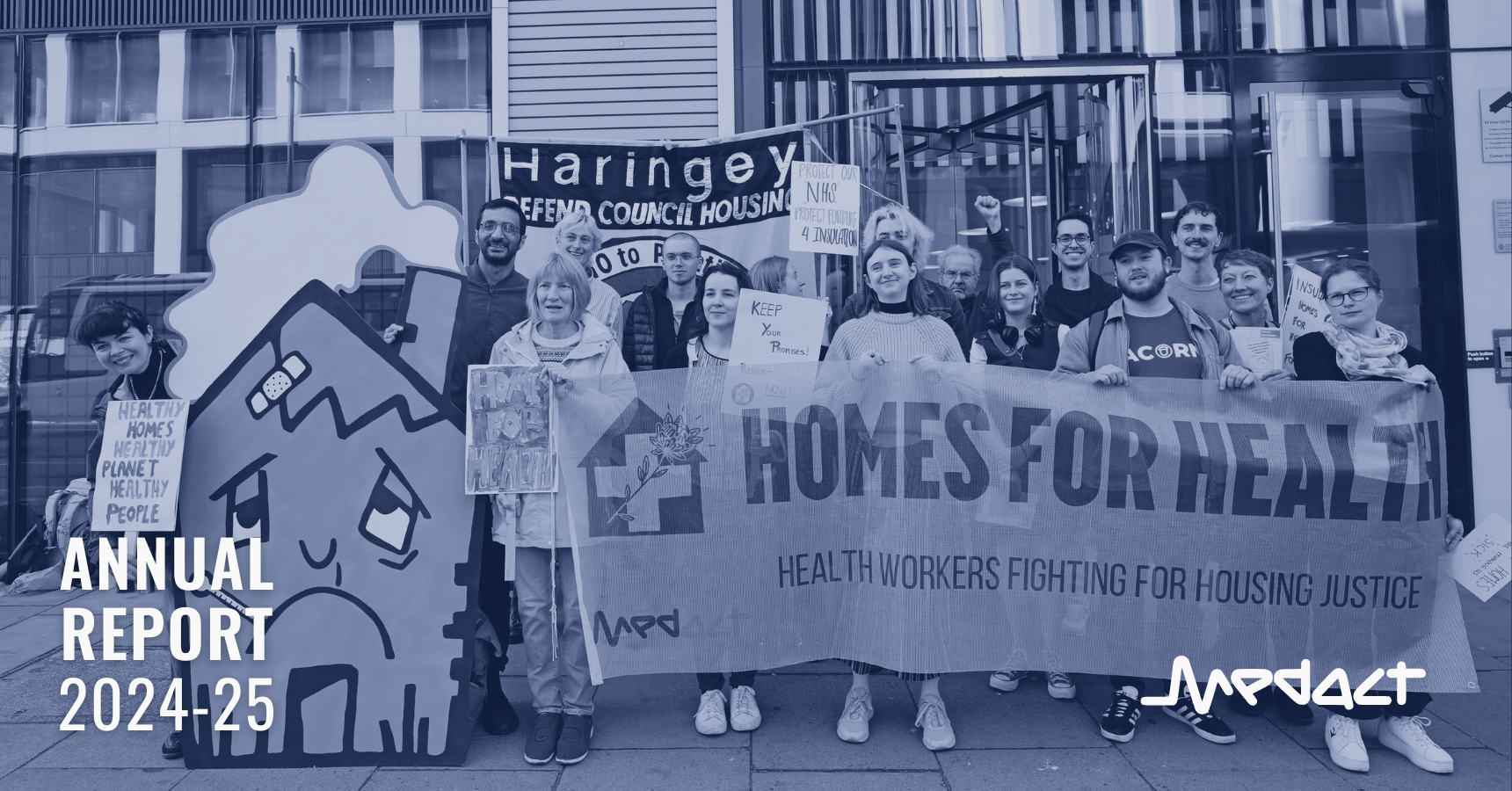
Climate justice means housing and energy justice
-

Homes for Health: How we win Health Justice
